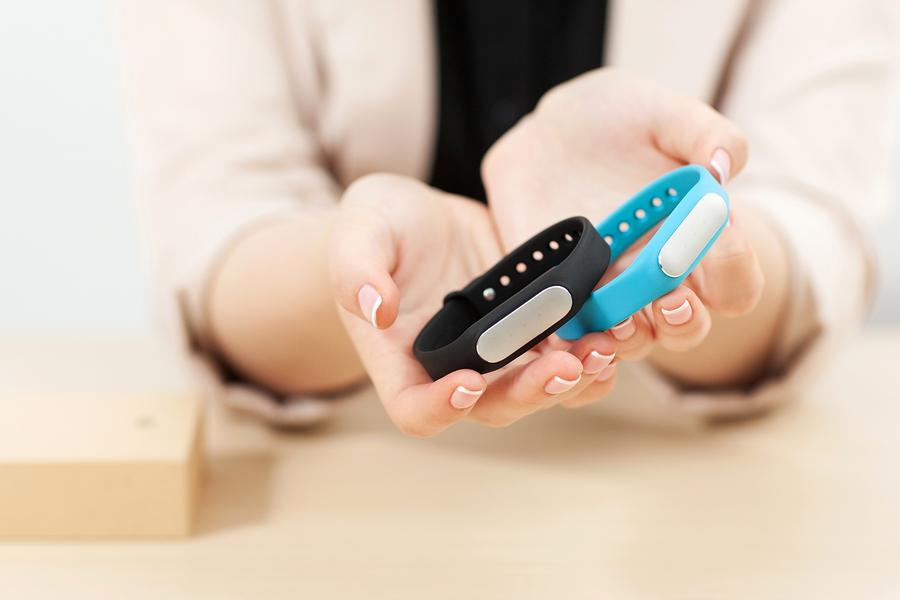As discussed in a previous blog post, wearable technology is an amazing way to boost your health and fitness efforts. There are a wide range of different gadgets in existence that can help you to track your exercise by storing data when you wear them during a workout.
Common Features of Wearable Technology
These devices can also help you to count the number of calories consumed and burnt, count the amount of steps taken during a day, and also they allow you to keep on top of your sleep pattern and blood glucose levels too. Approximately 72 million wearable fitness and activity trackers were sold last year alone, which goes a long way to demonstrate the popularity of this technology. Furthermore, this is a trend that seems set to continue to grow!
Healthcare and Fitness Technology
Wearable technology is continuing to evolve and is now arguably just as good as going to the gym with a friend when it comes to motivation. However, these are not the only innovative uses of wearable technology. It is now being adopted by those within the medical profession to assist with their patients. Researchers are exploring the possibility of giving wearable devices to patients who have undergone orthopedic surgery, especially those who have had a hip or knee replaced.
The findings of a study into this concept were recently revealed at a meeting of the American Academy of Orthopedic Surgeons. The study, which is authored by Dr Claudette Laiam, of NYU Langone Medical Center, involved the evaluation of more than 20 popular wearable health and fitness devices. The study aimed to determine if any of these devices could be of use, both pre and post surgery, in order to provide more information about the patient and their recovery.
The researchers were pleasantly surprised by the results of their study. Many of the fitness devices that they chose to evaluate were able to comprehensively track the activity levels of a patient, as well as providing data as to how well patients were complying with physiotherapy. The devices were also able to accurately track the sleep pattern of patients, as well as any fluctuations in weight. This means that surgeons have a fuller picture of their patients health., both before and after a surgical procedure has taken place. Furthermore, following surgery, the surgeon is then able to track how mobile the patient is. This helps the healthcare professional to better understand how successful the surgery has been.
The Future of Wearable Medical Technology
At this current time there are not a great deal of wearable health and fitness trackers on the market that are able to directly connect to electronic medical records. However, the majority of these devices do have data sharing capabilities, meaning that the potential for a link exists and would not be difficult to develop. It remains to be seen how well this concept will be integrated into popular medical practice, but it seems obvious to many that doing so would be a fantastic step forwards for patient care.
Additional Healthcare Benefits of Wearable Technology
In addition to the amazing potential that this kind of technology has to benefit patients, these devices can already be used by individuals to enhance certain areas of their life. These concepts include sleep tracking, activity tracking and stress tracking.
Sleep Tracking
Being able to track your sleep means that you can collect a wealth of helpful data that determines how healthy your sleep cycle is. By monitoring your movements during the night, a sleep tracker can log how much time you spend asleep, and how much of this sleep is a quality deep sleep. It will also keep track of the time at which you go to bed, and the time at which you wake up, meaning you can stay on top of your routine and adjust it if necessary.
Activity Tracking
Being aware of how much time you spend being active during the day is important if you are to maintain an optimum level of health and fitness. Keeping active is important for a number of reasons, and there are a wide selection of relevant devices on the market to help you do so. Activity trackers will generally also keep track of your heart rate, which is always a good thing to keep on top of!
Stress Tracking
You may be less familiar with this concept than the others mentioned, but staying on top of your stress levels is essential for preserving your health. Chronic stress can lead to heart disease, obesity, headaches, anxiety and digestive complaints.
Stress trackers work by sensing the conductivity between your skin, and can seriously help to keep you aware of your thoughts, feelings and emotions. When you are aware of your stress levels, you can make a more conscious and serious effort to keep them down!
References
1) http://www.reddinghipreplacement.com/#!How-Wearable-Devices-Are-Transforming-Orthopaedic-Care
Related Posts
Cigarettes May Inhibit Inflammation Treatments
Axial spondyloarthritis, also known as AxSpa, is a chronic…








